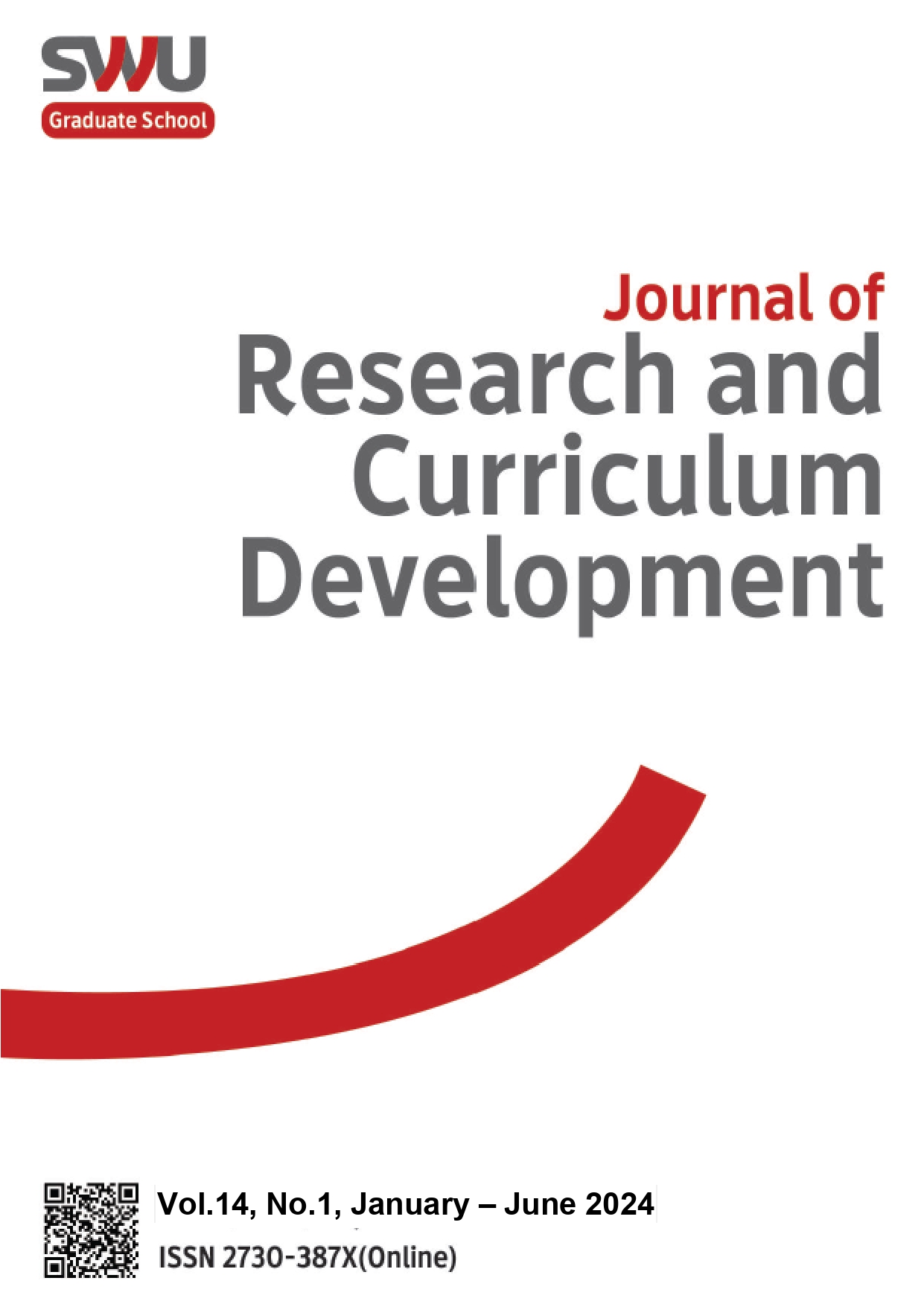The 3P Model: Supervision Model within School to Promote Learning Management Competency
Keywords:
Supervision model within school, Learning management Competency, Participatory supervision, PAOR, PLCAbstract
The objectives of the article are to (1) to present a school supervision model to promote teachers' learning management abilities and; (2) to implement a school supervision model to promote teachers' learning management abilities in schools. When the aspect of supervision in schools is very important in management to improve and develop teachers' learning management to create confidence and faith in the profession. Also, morale and encouragement can develop both teachers and students, specifically developing the quality of students in every aspect. Supervision within an educational institution is a system of cooperation between educational institution administrators, teachers and educational personnel in educational institutions to develop the academic work of educational institutions in accordance with educational standards through the planning process, planned operations and observing activities according to laid down procedures and reflection. In order to bring the results together to improve and develop with the Professional Learning Community (PLC), according to the internal school supervision process mentioned above and will be able to promote the ability to manage the learning of teachers.
References
Dan C. (2017). Professional learning communities’ impact on science teacher classroom practice in a Midwestern urban school district. University of Nebraska-Lincoln.
Jailall, J. M. S. (2014). Differentiated Supervision Revisited: Towards the Development of An Effective Supervisory Model to Promote Teacher Growth and Instructional Improvement.https://www.proquest.com/openview/5fac0e5da1ce375b0a94e983b4dcda47/1?pq-origsite=gscholar&cbl=18750&diss=y
Khamkerd, T. (2012). Talk about supervision 1: Why is educational supervision important. Wittayachan, 112(1), 25-27.
Konchuarat, W. (2013). Development of thinking processes. Nakhon Ratchasima Educational Service Area Office, Area 1.
Laoriandee, W. (2013). The science of teaching supervision and professional development coaching: theory. Strategy into practice. (12th ed.). Silpakorn University Press.
Ministry of Education. (2017). Research and development of models for curriculum development and teaching and learning: Competency base according to the National Qualifications Framework. Agricultural Cooperative Assembly of Thailand Printing Co., Ltd.
Office of the Secretariat of the Education Council. (2017). 4-year operational plan of the Secretariat of the Council. Education. Office of the Secretariat of the Education Council.
Phuaram, N. (2017). Development of a learning management system using professional learning communities for a network of small primary schools. https://so03.tci-thaijo.org/
Supawanich, K. (speaker). (8 April 2017). Future direction of Thai education Professional Learning Community: PLC professional learning community in the workshop Develop leaders of the professional learning community (PLC) process for administrators, teachers, and educational personnel. Secondary Educational Service Area Office, Area 40. Kosit Hill Hotel: Phetchabun.
Thammawithikul, A. (2010). Non-formal education management. https://panchalee.wordpress.com/2010/12/28/non-formal/
Uamphrom, S. (2017). Guidelines for creating a professional learning community. https://so03.tci-thaijo.org/
Wehachart R. (2014). Management of basic educational institutions (5th ed.). Namsin Songkhla Company: Advertising Co., Ltd.
Wongwanich, S. (2017). Classroom action research. (19th ed.). Chulalongkorn University.
Downloads
Published
How to Cite
Issue
Section
License

This work is licensed under a Creative Commons Attribution-NonCommercial-NoDerivatives 4.0 International License.





